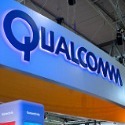Qualcomm buys Nuvia for $1.4B amid silicon industry upheaval
Qualcomm could be eying the data center market, or leverage against Nvidia's Arm, via its Nuvia purchase. One thing is clear: There's turmoil in the silicon industry.

Qualcomm – the world's leading vendor of 5G silicon for devices – said it plans to spend a whopping $1.4 billion to buy a two-year-old startup called Nuvia. The acquisition is viewed as an important strategic maneuver by Qualcomm amid growing turmoil in the wider chipset industry.
Nuvia was founded in 2019 by a handful of top chipset executives from Apple and Google. Nuvia Co-Founder Gerard Williams is credited with helping to develop many of Apple's newest central processing units (CPUs), the brains powering some of the iPhone vendor's laptops and smartphones.
As noted by AnandTech, the CPU Nuvia has been building has been touted as able to "significantly outperform the competition both in raw performance and power efficiency once it came to market."
Qualcomm said it plans to insert Nuvia's CPU tech into its silicon products for smartphones, laptops, automobiles and other devices.
Data center aspirations
However, Nuvia had initially intended its CPU offerings for the data center market. That's noteworthy considering Qualcomm had previously attempted to sell its products into the data center market as well. The company largely abandoned that effort roughly two years ago.
According to the Wall Street Journal, Qualcomm has given no indication of reversing that decision following its acquisition of Nuvia.
Whether that might change is anyone's guess.
"With Nuvia's efforts in developing server processors, Qualcomm could combine this with its existing IP and engineering group to further advance into communications infrastructure and data center applications in the future," wrote analyst Jim McGregor of Tirias Research.
Qualcomm recently announced a major push into the market for 5G infrastructure equipment.
For its part, Qualcomm maintained that its acquisition of Nuvia would bolster its ongoing focus on the market for 5G. "Together [with Nuvia], we are very well positioned to redefine computing and enable our ecosystem of partners to drive innovation and deliver a new class of products and experiences for the 5G era," said Qualcomm's Cristiano Amon – the company's incoming CEO, in a statement.
In its release, Qualcomm touted support for its acquisition from customers ranging from Microsoft to LG.
The Arm angle
Aside from how Nuvia might aid Qualcomm's moves into new business areas, the transaction can also be viewed as a potential hedge against Nvidia's pending purchase of Arm. Technology from Arm is widely used inside the CPUs of vendors ranging from Apple to Qualcomm.
Nvidia, for its part, has promised to continue to license Arm's technology – but Qualcomm may have some concerns about that.
"This would give Qualcomm an important level of independence and safety in regards to their future product roadmaps – just in case Nvidia would make substantial changes to the CPU IP licensing model," wrote Andrei Frumusanu of AnandTech.
Upheaval in silicon
Nvidia's pending $40 billion purchase of Arm is just one of a growing number of massive transactions in the silicon space. For example, Advanced Micro Devices plans to purchase Xilinx for around $35 billion, while Analog Devices said it will buy Maxim Integrated Products for $20 billion.
Qualcomm itself has so far remained outside of those megadeals following the blockage of its proposed purchase of NXP by China and the halt of Broadcom's hostile takeover of Qualcomm by the US government.
Qualcomm's plan to buy Nuvia wasn't the only evidence of tumult in the silicon space Wednesday – Intel announced it would replace current CEO Bob Swan with VMware CEO Pat Gelsinger.
That front-office overhaul follows delays of Intel products and the company's loss of Apple's business for its desktop computers.
The appointment of Gelsinger brings a technologist back to the helm of Intel. Gelsinger was Intel's first CTO prior to joining VMware; Swan was Intel's CFO before becoming the company's CEO just two years ago.
Related posts:
— Mike Dano, Editorial Director, 5G & Mobile Strategies, Light Reading | @mikeddano
About the Author(s)
You May Also Like




_International_Software_Products.jpeg?width=300&auto=webp&quality=80&disable=upscale)







